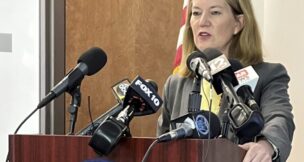On the horizon
Arizona Capitol Reports Staff//June 9, 2006//[read_meter]
Teresa Schmid When our communities struggle with serious issues, leaders often turn to lawyers to be among those who solve problems in a crisis. When Arizona offered refuge to Hurricane...
No tags for this post.














